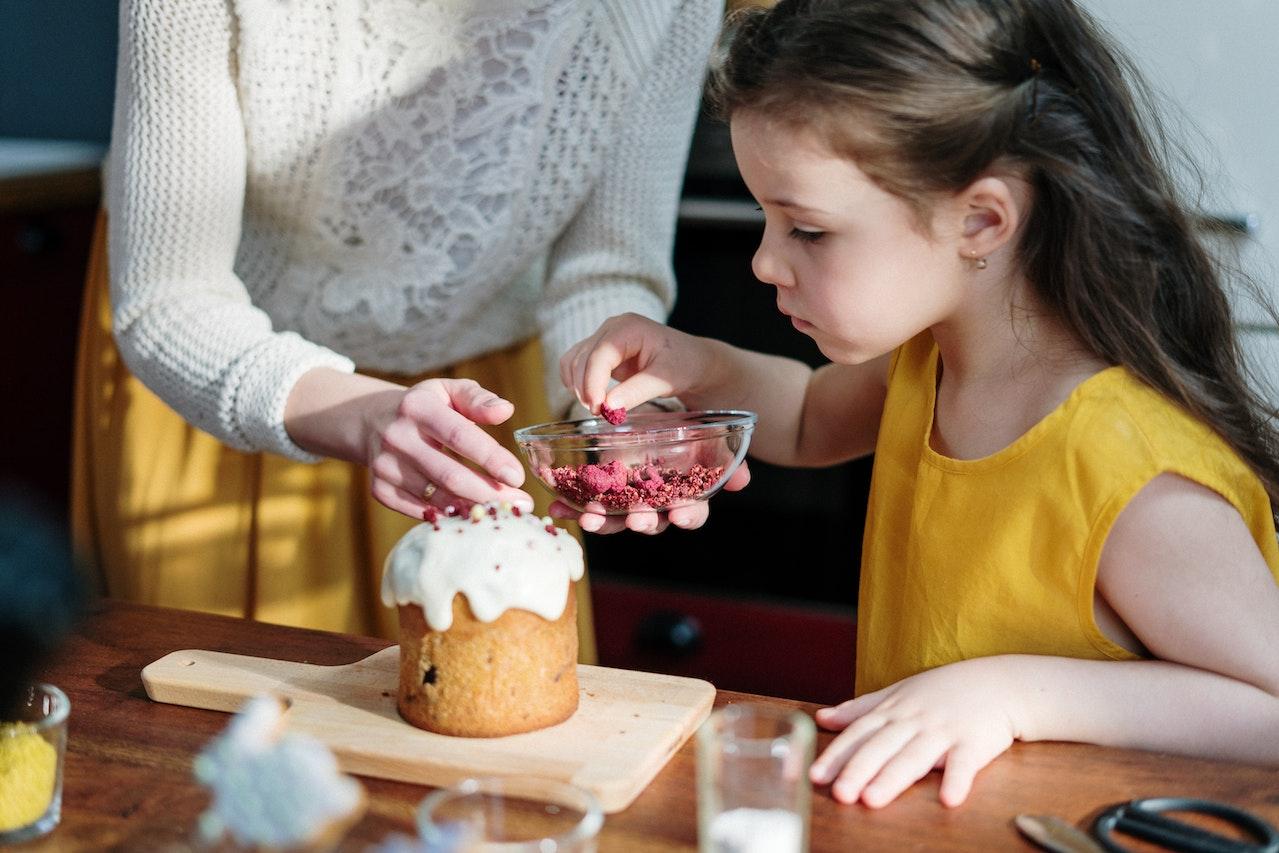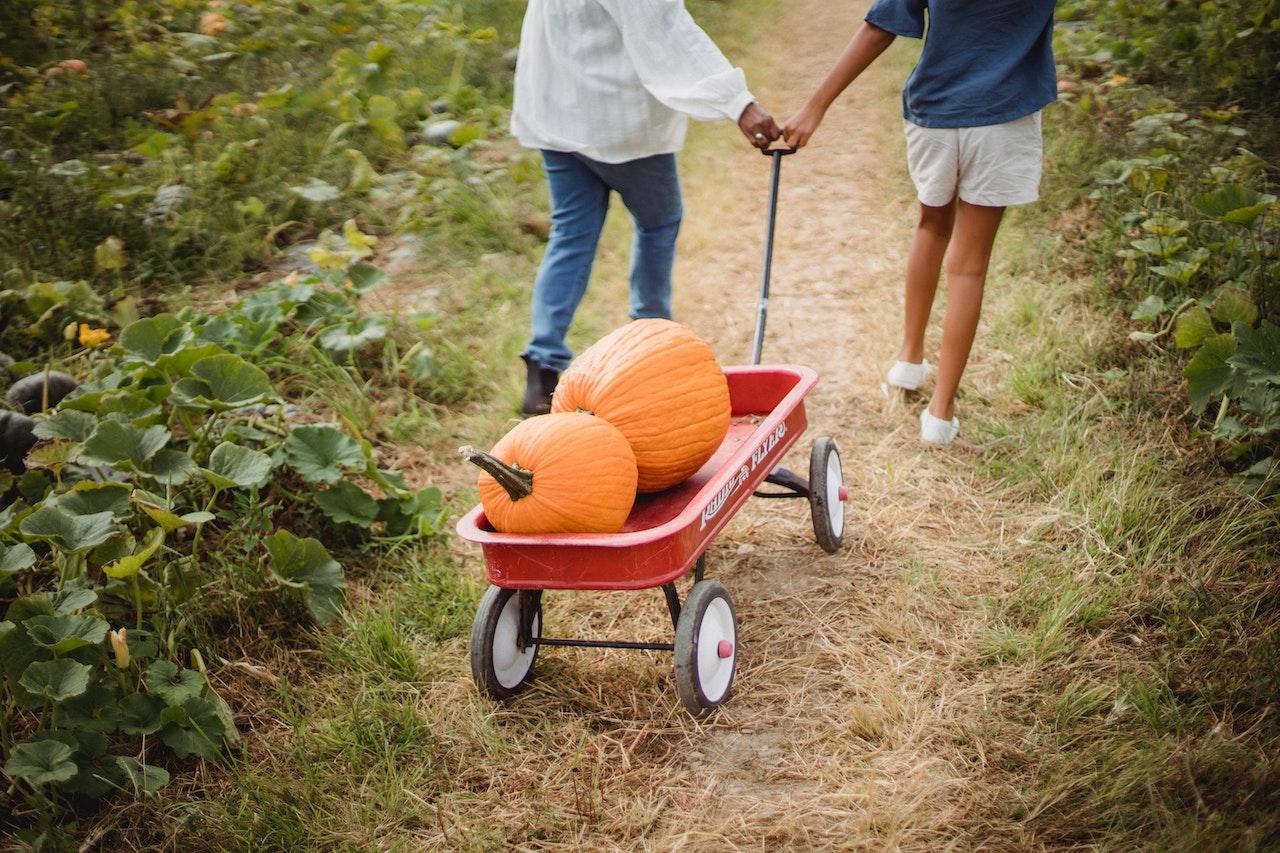Try These Fun, Affordable Summer Activities With Your Children

According to Forbes, American moms are among the most guilty-feeling in the world. And when summertime rolls around, the guilt piles on when we can’t afford to pay for expensive camps or simply don’t have time to plan elaborate activities. Thankfully, you don’t have to have all the time or money in the world to give your kids a fun, educational summer. Here are 4 budget-friendly, low-prep activities for your school-aged kids.
1. Bake or cook together.

Whether you bake something from scratch, use a box mix, follow a recipe, or freestyle, there is much to learn in the kitchen. It’s a great sensory activity and teaches essential life skills. It can be as easy as involving your child in prepping for a typical family meal or as adventurous as making a new recipe together. You decide!
Ages: 2 and up
You’ll need: Ingredients for the recipe or meal
Cost: $0 and up
What it teaches: Measuring, fine motor skills, chemistry, nutrition, fractions
2. Attend a free local event.
Many towns and cities host free events throughout the summer. Visit your municipality’s website and look for an events calendar. If you can’t find any free events in your city, try searching for events in nearby smaller towns. Parades, kids festivals, free community breakfasts, and free admission days to local museums are common in summer.
You can also check your local library for summer reading events and clubs. Many libraries will host weekly meetings and activities that aren’t book-related, such as Lego club or a toddler and tot meet-up.
Ages: All ages
You’ll need: A library card, sun protection for outside events, snacks, and water.
Cost: $0–though it may cost you some gas money, and a library card may have a small fee, depending on where you live.
What it teaches: Social skills, language development, reading skills
3. Play card games.
Basic card games are a great way to spend time with your kids. They’re easy to teach, and each game usually lasts a short amount of time, but your kids can entertain themselves for hours. Card games such as Uno, Go Fish, and Crazy 8’s can easily be taught and mastered over the summer. Even Black Jack can be used to teach addition and probability.
Susie Allison, an Early Childhood Expert, former teacher, and mom of 3, recommends War because it’s fun and educational. “This little game is actually a big deal for preschoolers and busy big kids for one very good reason: number sense.” You can get so much mileage out of one deck of cards.
Ages: 3 and up
You’ll need: A deck of cards
Cost: $0-$15
What it teaches: Number sense, greater than/less than, rule-following, addition, matching, probability
4. Visit a U-Pick farm or farmer’s market.

If you’re lucky enough to live near an orchard or a similar farm, they may offer U-Pick days during the harvest months. You get to pick your own produce from the tree, bush, vine, etc., and pay a discounted price for fresh, local fruit and vegetables. Some farms charge by weight–like your grocery store–and others charge by container. Some only accept cash, and others work on an honor system. Be sure to call ahead and get all the details before you go.
A farmer’s market is the next best thing if you can’t get to a U-Pick farm. You can often sample the fruit before you buy and speak directly to the people who work on or own the farm.
Ages: All ages
You’ll need: A few buckets or containers–though the farm may have buckets they want you to use
Cost: Variable. Unlike at the grocery store, some amount of bartering is usually okay. Still, it’s easy to spend more than you’d hoped. Carry the amount you want to spend in cash. Once it’s gone, stick to free samples or head home.
What it teaches: Agriculture, personal finance
A fun, educational summer doesn’t have to be complicated or costly. You can still provide a wide variety of experiences for your child that are similar or identical to what they would get at a day camp, but without breaking the bank or spending tons of time planning.






